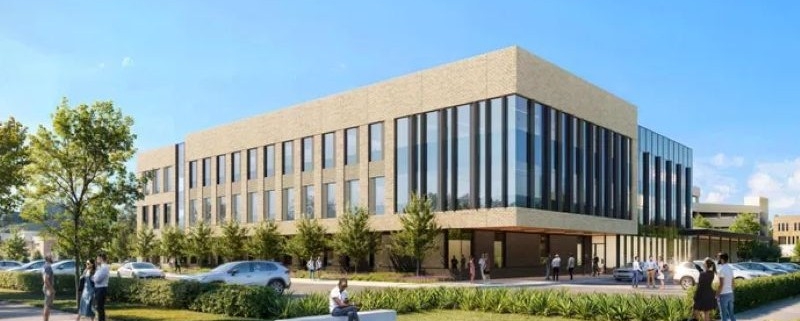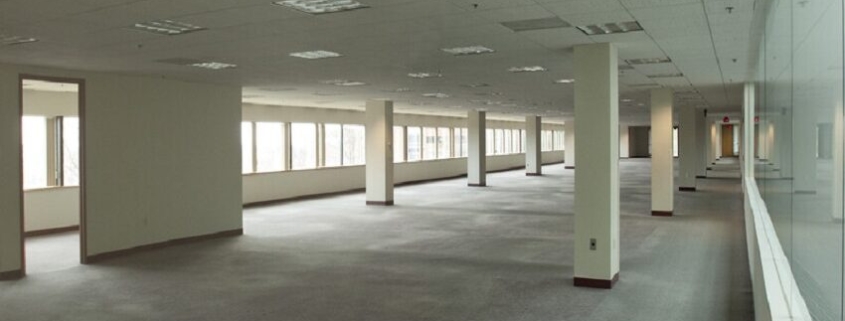Children’s National Hospital is one of several D.C.-area health systems looking to expand its footprint into more neighborhoods across the region, and it is taking advantage of record office vacancy to find new locations.
“Children’s National used this strategy to lease two floors at the Wonder Bread Factory office building, a Douglas Development-owned property in Shaw that became vacant after WeWork and other tenants moved out,” said Children’s Executive Vice President and Chief Strategy Officer Michelle McGuire at Bisnow’s Mid-Atlantic Healthcare Summit in D.C.
Douglas Development principal Norman Jemal confirmed to Bisnow that Children’s National leased the first two floors of the building, which total around 50K SF and were previously occupied by a nonprofit.
McGuire said the deal is part of Children’s National’s efforts to expand from its main D.C. campus into neighborhoods across the region to give more people convenient access to healthcare.
“The health system also leased 140K SF in the former Discovery Communications headquarters in Silver Spring, and it is opening facilities in Friendship Heights, Columbia Heights, Anacostia, Takoma Park and Prince George’s County,” McGuire said. “We’ve been thinking about needing to be in communities to address gaps in care and access to care and access to specialty care, so that drives the need to have a broader footprint.”
For some health systems, the coronavirus pandemic highlighted the importance of having locations in the community. Howard University College of Medicine Associate Dean for Strategy Outreach and Innovation Michael Crawford said he saw the most successful Covid testing and vaccination sites were ones within neighborhoods, rather than at large healthcare campuses.
“Folks are craving that intimacy between their providers and that’s helping inform how we look at an ambulatory strategy,” Crawford said. “Is that co-location? Yes, co-location is an attractive proposition when you think about how you can array services to meet the needs of the customer. Is that looking at commercial spaces? Yes, you have to take that into consideration.”
Johns Hopkins University & Health Systems Vice President of Economic Development Alicia Wilson said her organization is also looking at commercial spaces as a way to be closer to patients.
“We’re thinking about our growth and thinking about our utilization of leased spaces within commercial buildings, and how we have our patient care be closer to our patients and repurposing our facilities at traditional hospital centers for those things that must be done at the hospital site,” Wilson said.
The prospect of leasing to health systems is especially attractive to office and retail owners that experienced rising vacancy during the pandemic. Cushman & Wakefield Managing Director Matthew Sullivan said medical users have increasingly heard from these owners looking to lease space to them.
“A lot of asset classes, office and retail in particular, have had a tough go the last 18 months,” Sullivan said. “The ownership of those asset classes calls the healthcare crowd all the time and says, ‘Can we get medtail, put medical into retail?’ or, ‘Hey, I’ve a got commodity [Class-]B office, and 20% is a couple physicians, can we convert it?'”
While the landlords are expressing more interest, Sullivan said it is often difficult to convert office and retail space into medical use. He said the cost can be so high that the landlord would need to land a large user with a long-term commitment. He cited one example of this, MedStar Health’s 112K SF lease with Beacon Capital at D.C.’s Lafayette Centre in 2015, but he said those deals are few and far between.
“Overall, it’s unlikely those are successful without dramatic changes,” Sullivan said. “All the infrastructure things have to be created, and that becomes really expensive. On the surface it sounds easy: ‘Let’s get medical folks and stick them here, and there’s good parking in this shopping mall.’ But medical is not going to take down a 200K SF old Macy’s. There are a few cases across the country, but overall it’s more challenging.”
“Landlords that try to put medical users in the same building as traditional office tenants often find the two are difficult to mix,” Anchor Health Properties Vice President of Investments Elliott Sellers said. “We made the conversion bet selectively across the country, but you need to go into it assuming that your commercial tenants are likely going to leave,” Sellers said. “Those two uses don’t really coexist all that well when you have a law firm in one floor and you have sick patients sitting in the lobby. In all four of those cases, we’ve had almost all of our commercial tenants leave.”
Sellers said office landlords are better off bringing in medical real estate experts and trying to market the full building to healthcare users, but he said the conversion projects aren’t easy to execute.
“You layer in the complexities of design and mechanical systems and layout, and I think there’s probably more losers than winners when it comes to conversion, not just in D.C., but broadly,” Sellers said.
Douglas Development, which leased the first two floors of its Wonder Bread Factory building to Children’s National, is planning to fill the top two floors of the building with coworking office users. The landlord is rolling out its new in-house coworking concept, The Mark, on the former WeWork floors of that building and two other D.C. buildings WeWork vacated in October, the Washington Business Journal reported. Jemal confirmed the plans to Bisnow and said he thinks Children’s National and the coworking space will fit well together in the building.
“We were able to secure Children’s Hospital, which is a great tenant, it fits in great for the neighborhood, and it serves the community,” Jemal said. “The days of everybody wearing a suit and tie in an office building are the days of yesteryear. Everybody needs to see a doctor at some point — that’s just the reality of life — and where better for it to be than in the community?”
Health systems are also looking to locate within mixed-use developments that have apartments, retail and other uses. Whitman-Walker just broke ground on its new healthcare facility on the St. Elizabeths East campus in Congress Heights. Whitman-Walker CEO Don Blanchon, speaking at the event, said his team has focused on how to integrate the facility with the rest of the development to make it a space that feels like part of the community.
“At St. Elizabeths, we’re going to do a bunch of workaround healthcare, there’s going to be a bunch of services there,” Blanchon said. “The real issue is: What’s going to bring the community in? How do we think about that space, what do we do for activation on the ground floor? What do we do for engagement? What do we do on the outside of the space? In dealing with our partner Redbrick, there’s been a lot more thought about this sense of community ownership and activation. Ten years ago, we just didn’t spend as much time on that.”
Source: Bisnow







